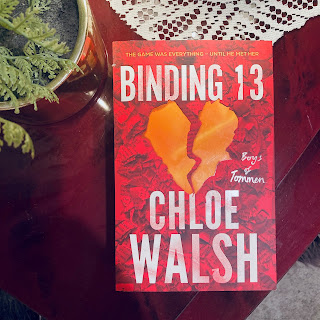Review: Invisible Boys by Holden Sheppard
Gritty and raw, Invisible Boys is a grim reminder that not every YA LGBTQIA+ book can be like Heartstopper and leave the reader with warm fuzzies. This is a book that is literally for the titular Invisible Boys, the ones that are hidden due to the stigma that would follow them in the small and rough communities where they live. Charlie, Hammer and Zeke are three seemingly different boys living in a rough small town in Western Australia. Zeke is shy, intelligent and very sensitive, the near constant target of Hammer, the town's star footballer whose popularity rests on his sporting prowess and his near constant bullying of others which, as is often the case in hyper-masculine communities mistaken for manliness. But the two have more in common than they think--both are attracted to men and, possibly, each other. Meanwhile, an incident with a predatory married man has left musician Charlie not only outed before he is ready but wrongfully shouldering the blame. (Umm, who was the much older married adult in the situation?) Anyway, each boy has their own coming out, or choosing to stay in the closet story, ones that adolescents in their situation will find relatable.
I found this book to be uncomfortable in places, mostly because I was reading it from the perspective of a heterosexual adult who grew up in suburbia. In other words, this book was not written for me, and nor should it be. It's a coming of age and coming out book for adolescents. It addresses very important issues that arise surrounding secrecy and the characters looking online for advice--and more. There are accounts of predatory behaviour from adults that some readers may find disturbing. The novel is a challenging read overall, with dark themes of homophobia, predatory men and suicide and is best suited to mature teens.
And although the novel is written about boys and for boys, one thing I think is worth mentioning is that I found the lack of positive female characters concerning. (The only truly decent adult female character, schoolteacher Mrs Collard is written out early in the novel.) I'm not of the opinion that female characters should be abundant in books like this, but there does need to be some kind of balance, something that will challenge the perceptions of the target audience instead of offering an almost wholly negative account.
A gritty and raw account of coming out in a small town.
Recommended.




Comments